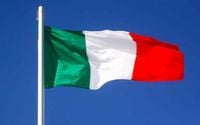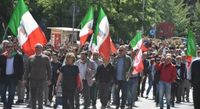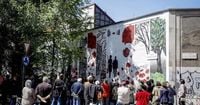In a controversial decision that has sparked significant debate, the president of the city council of Romano di Lombardia, Paolo Patelli, has prohibited the performance of "Bella Ciao" and other musical pieces during the Liberation Day celebrations set for April 25. This directive follows the national government's call for public events to be conducted in a sober manner due to the recent death of Pope Francis.
Patelli, a member of the Lega party, announced that no musical performances, hymns, or songs would be allowed during the first stages of the parade, except for moments of silence and the "Attenti" salute. The order has drawn sharp criticism from local groups, particularly the Anpi (National Association of Italian Partisans), which has voiced its discontent with the decision.
Walter Torioni, the president of the local Anpi chapter, expressed profound disappointment, stating, "I read the provisions as an attempt to silence the celebration of April 25, undermining its significance as a popular festival for freedom and the exercise of democracy, which should not be impeded by mourning for the passing of a pope who we felt was close to the values of the Resistance." Despite the ban on the band playing the song, Torioni asserted that citizens would still be free to sing it.
The municipal administration responded to the backlash, with Patelli clarifying that the prohibition on musical accompaniment applies only to the first four stages of the procession. He emphasized that the overall program would remain unchanged for the stop at the monument to the Fallen and the conclusion in Piazza Roma.
This decision has not only affected Romano di Lombardia but has also led to cancellations of celebrations in two nearby municipalities in Brescia: Ono San Pietro and Cividate Camuno. Both towns, governed by right-wing administrations, have opted to cancel their April 25 events altogether. In Cividate Camuno, Mayor Alessandro Francesetti, who is also the coordinator for Fratelli d'Italia in Vallecamonica, had previously planned to hold celebrations on April 26 but has now scrapped those plans.
The government's invitation to conduct public events in a manner appropriate to the national mourning has raised questions about the balance between honoring historical commemorations and respecting current sentiments. While some argue that the restrictions are necessary in light of the pope's death, others contend that the spirit of Liberation Day should not be stifled.
As the April 25 celebrations approach, the debate continues, with many citizens expressing their determination to uphold the traditions associated with Liberation Day, including the singing of "Bella Ciao," a song emblematic of the Italian Resistance during World War II.
In light of these developments, the situation in Romano di Lombardia serves as a microcosm of broader tensions in Italian society regarding memory, mourning, and the right to celebrate freedom and democracy. The interplay between historical remembrance and contemporary events is a delicate balance that local administrations must navigate, particularly in times of national sorrow.
As the community prepares for the Liberation Day procession, it remains to be seen how these restrictions will impact participation and the overall atmosphere of the event. Will the citizens of Romano di Lombardia find ways to express their sentiments amid the imposed limitations? Only time will tell as the day approaches.



